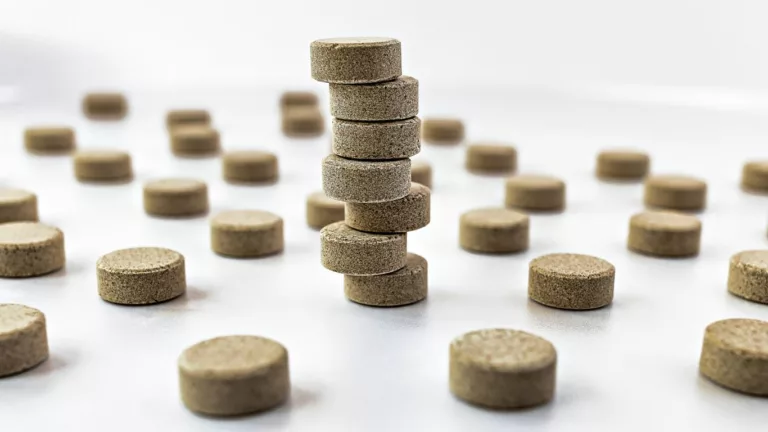Does Rheumatoid Arthritis Cause Weight Gain? – A Detailed Overview
Wondering if rheumatoid arthritis (RA) could be causing you to gain weight? Well, you’re not alone. Many people with RA notice changes in their weight, but it’s not always straightforward. Let’s dive into the connection between RA and weight changes, and see what might be going on.
 Rheumatoid arthritis (RA) is an autoimmune disease that causes inflammation in your joints. If you’ve been diagnosed with RA, you probably know that it can affect your daily life in many ways—from pain to fatigue and even mood changes. But one thing you might not have expected is how RA can mess with your weight. So, let’s break it down and figure out whether RA can actually lead to weight gain.
Rheumatoid arthritis (RA) is an autoimmune disease that causes inflammation in your joints. If you’ve been diagnosed with RA, you probably know that it can affect your daily life in many ways—from pain to fatigue and even mood changes. But one thing you might not have expected is how RA can mess with your weight. So, let’s break it down and figure out whether RA can actually lead to weight gain.
How Does RA Affect Your Metabolism?
When you have RA, your immune system is overactive and attacks healthy joints. This inflammation can affect other systems in your body too, including your metabolism. Some studies suggest that inflammation linked to RA could slow down your metabolism. This means your body might burn calories less efficiently, potentially leading to weight gain. But it’s not just about metabolism. Medications that are commonly prescribed for RA can also play a huge role. Drugs like corticosteroids (think prednisone) are notorious for causing weight gain. These meds can increase your appetite and make your body hold onto more water and fat. If you’ve been on steroids for any amount of time, you might have noticed that your clothes fit differently or you’ve gained a few extra pounds around your belly. 
The Role of Physical Activity
Another way RA affects weight is through physical activity (or the lack of it). RA can make it harder to stay active because of joint pain and stiffness. When you’re struggling to move around or exercise, it’s easy to see how weight could start creeping up. However, it’s not all bad news. Weight gain isn’t guaranteed, and it’s something you can manage with the right approach. You don’t have to just accept it.
RA Flare-Ups and Weight Gain
During an RA flare-up, when your symptoms worsen, you might feel even less motivated to move. The pain and stiffness can keep you from walking, exercising, or even just doing everyday tasks. The more flare-ups you experience, the harder it can be to maintain a regular workout routine, which could contribute to gaining weight. However, it’s not all bad news. Weight gain isn’t guaranteed, and it’s something you can manage with the right approach. You don’t have to just accept it.
Can RA Treatments Lead to Weight Gain?
As mentioned earlier, some RA treatments can lead to weight gain. But it’s not the same for everyone. Some people experience significant weight changes, while others don’t notice much of a difference. The most common culprits are medications like corticosteroids and biologics. These medications can alter your appetite and fluid retention, both of which contribute to weight gain.
Corticosteroids (Prednisone and Similar Drugs)
Corticosteroids, like prednisone, are often prescribed to manage inflammation during an RA flare-up. While these drugs can work wonders in reducing pain and swelling, they are also linked to weight gain. They can increase your appetite and cause your body to retain salt and water, leading to extra pounds that may be hard to shake off. If you’ve been prescribed corticosteroids, you might find that weight gain occurs quickly. And while the weight gained during a steroid treatment is often water weight, it can still be frustrating to deal with. 
Biologic Drugs
Biologic drugs are another common treatment for RA, and they work by targeting specific parts of the immune system to reduce inflammation. These drugs can be helpful for many people with RA, but some patients report gaining weight as a side effect. The mechanism behind this isn’t entirely clear, but it’s thought that biologics might cause changes in your appetite or metabolism. Again, this isn’t something that happens for everyone, so don’t worry if you don’t experience it.
How to Manage Weight Gain with RA
If you’re dealing with RA and weight gain, there are steps you can take to help manage it. The goal is to find balance and focus on what you can control. Here are a few tips:
1. Eat a Balanced Diet
Eating well is crucial when you have RA. Focus on foods that fight inflammation, like fatty fish (salmon, mackerel), leafy greens, nuts, and berries. A healthy, anti-inflammatory diet can not only help with managing RA symptoms but also prevent excessive weight gain.
2. Move When You Can
I know, I know. When your joints hurt, the last thing you feel like doing is exercising. But even small movements can help. Try low-impact activities like swimming or walking. The goal isn’t to run marathons—just keep your body moving when possible.
3. Talk to Your Doctor About Medications
If you’re concerned about weight gain due to medications, have a conversation with your doctor. There might be alternative treatments or adjustments to your current medications that could help minimize weight gain. Don’t make changes to your treatment without professional advice!
4. Manage Stress
RA can be stressful, and stress can lead to overeating or emotional eating. Finding ways to manage stress—through relaxation techniques, yoga, or even meditation—can help reduce the urge to snack or eat out of frustration.
Is It Possible to Lose Weight with RA?
Absolutely! It may take more effort and planning, but weight loss is definitely possible with RA. The key is to focus on a balanced diet and gentle exercise. Always check in with your doctor or a nutritionist to ensure you’re following a plan that’s safe and effective for you.
Conclusion
So, does rheumatoid arthritis cause weight gain? The answer isn’t as simple as a yes or no. RA itself can affect your metabolism, and treatments like corticosteroids can contribute to weight gain. However, weight gain isn’t inevitable, and it’s something you can manage with the right approach. Focus on maintaining a healthy diet, staying as active as possible, and working closely with your healthcare team to find the best treatment plan. By taking control of the factors that are within your reach, you can manage your weight and your RA symptoms at the same time!
FAQs
- Can rheumatoid arthritis lead to weight gain even without medication? Yes, RA can cause weight gain due to metabolic changes and decreased activity during flare-ups, even without medication.
- Can corticosteroids make me gain weight permanently? While corticosteroids can lead to short-term weight gain, the weight often comes from water retention rather than fat. Once you stop the medication, the weight usually goes down, but this can vary.
- How can I avoid weight gain when taking medication for RA? Work with your doctor to adjust your medication if needed, and focus on eating a balanced diet and staying active to help manage any weight changes.
- Is it harder to lose weight if you have RA? It can be harder because of joint pain, fatigue, and medication side effects, but it’s still possible with a structured plan that works with your condition.
- Should I avoid any specific foods if I have RA? Focus on anti-inflammatory foods and avoid processed foods, excessive sugars, and refined carbs, which can worsen inflammation.
References
- American College of Rheumatology. (2023). Rheumatoid Arthritis and Weight Changes. Read More
- National Institutes of Health (NIH). (2022). Corticosteroids and Weight Gain: Understanding the Connection. Read Article
- Mayo Clinic. (2024). Managing Rheumatoid Arthritis and Maintaining a Healthy Weight. Read More
Disclaimer
The information in this article is for educational purposes only and should not be used as a substitute for medical advice. Always consult with your healthcare provider about any concerns related to rheumatoid arthritis, medications, and weight management. Individual results may vary.

Tarra Nugroho is a dedicated Nurse Practitioner with a strong foundation in family and preventive care. She brings both compassion and clinical expertise to her practice, focusing on patient-centered care and health education. As a contributor to Healthusias.com, Tarra translates medical knowledge into clear, empowering articles on topics like women’s health, chronic disease management, and lifestyle medicine. Her mission is simple: help people feel seen, heard, and informed—both in the clinic and through the content she creates. When she’s not caring for patients, Tarra enjoys weekend hikes, plant-based cooking, and curling up with a good health podcast.







